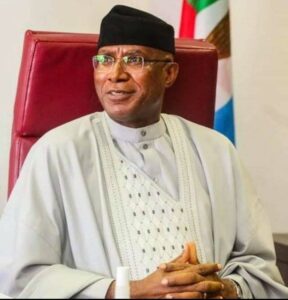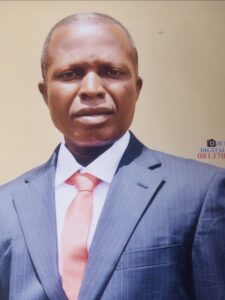THE NEED FOR STRICTER GUN CONTROL – THE SOUTH AFRICAN CASE STUDY
BY ZIK GBEMRE
It is unfortunate that man has often times used his own hands to create problems for the human race, which usually end up threatening his very existence. It is also crazy that our modern world today is hiding under the umbrella of “freedom of choice” and “human rights” to complicate our very existence on earth. That is how best we can describe the ‘gun culture’ phenomenon that started in developed Western countries like the United States of America (USA) and has gained grounds in some African countries, in this case – South Africa. What perhaps, we might say was initiated and promoted with good intentions is today claiming innocent lives in their hundreds and thousands in South Africa.
Little attention was given to the gun culture in South Africa and many never knew how serious the problem was and still is until when news broke in February 14, 2013, during Valentine’s Day that the girlfriend of the famous Olympian Oscar Pistorius was shot dead in his own house – and he gave the statement of shooting his girlfriend because he thought that she was an intruder. The Olympian used his nine millimeter pistol to shoot her. It was when the South African sprinter, who was the first double amputee to compete in the Olympics, was charged with murder for shooting his girlfriend, model Reeva Steenkamp, that the world focused more closely to the gun culture in South Africa. While initial reports suggested that the 26-year-old athlete had mistaken Steenkamp for a burglar, the BBC reported that authorities were skeptical: “Police say neighbours heard screaming and shouting around the time of the shooting, and that they had been called to investigate incidents of a domestic nature at the same house in the past.” Pistorius’ ownership of an affinity of guns has been well documented by journalists, including the New York Times Magazine‘s Michael Sokolove and others. That is just one person amongst many South Africans who own guns for protection.
Though the Pistorius murder case in currently ongoing and widely televised across the globe, the shooting is the most high-profile case from a country that, like the USA, has recently grappled with the impact of its well-established gun culture. Interestingly, firearms are not mentioned in the South African constitution, and a tough gun control law was passed in 2000. When it went into effect five years later, it put a five-gun limit on most citizens, allowing just one gun per person for self-defense purposes. After the said incident, the news spread all over the world and gun violence was one of the highlighted issues.
A lot of South Africans own a gun and keep it in their homes for protection. The rate of crime and violence in South Africa is high and residents are always ready to protect themselves with the use of the gun. But the question is; is gun ownership and the use of gun the best way a country should address its crime rate? The killing of Pistorius girlfriend has highlighted South Africa’s history of gun violence and high crime. And it’s shown the world that many South Africans live with a palpable, almost paranoid, fear of having their homes broken into. In 2012, more than 50% of South Africans told the country’s police force that they’re afraid. The number of home burglaries across the country of 50 million has more than doubled. They totaled 9,063 in a 12-month period spanning 2002/2003; seven years later, it was up 18,786. And in a similar period ending in 2012, reported break-ins dipped to 16,766, according to South Africa’s crime reporting body,the Institute for Security Studies. The international group Gunpolicy.org reports that there are about 6 million licensed firearms in South Africa.
“The paranoia about being a victim of a house robbery is understandable,” said the group’s small arms researcher, Lauren Tracey. “Victims are relatively helpless against these attacks.” It’s common to see armed guards patrolling gated, middle-class neighborhoods.
Hiring a private security firm is not the exception but the norm. Workaday people install panic buttons, closed-circuit televisions, man trap doors, boom gates and outdoor point-to-point infrared motion-sensing beams on their houses. Also unique to South Africa: When burglars break in, they likely are not after a flat-screen television or jewelry, experts say. They want the homeowner’s guns. That is in part because it is very hard to acquire a gun legally in South Africa, but it remains, many say, relatively easy to get a gun illegally. This of course further increases the crime rate in South Africa.
However, to understand South Africa’s gun culture, it is crucial to go back nearly two decades. In 1994, Apartheid ended. The official system of racial segregation, in place since 1948, took rights away from black Africans and gave virtually all power in every aspect of life to whites. For generations, violence born out of apartheid spawned a kind of arms race; blacks and whites fought against each other, and everyone else armed themselves, afraid to be caught in the cross fire. Gun violence was at a record high as the country made its first effort to become what archbishop and peace crusader Desmond Tutu envisioned – “a rainbow nation”. Other spiritual leaders around the country began campaigning to reduce violence. “Before 1994, there was a low-key civil war in South Africa,” said Claire Taylor, a spokesperson for Gun Free South Africa, a non-profit group that grew out of a movement to cut down on crime born from years of inequity during apartheid. “Both sides — white and blacks — were armed soldiers in a way.” The roots of gun culture in South Africa are not unlike those of the United States, she said. “There is a history of colonization, of taking, of settling,” she said. “For black people, the AK-47 was a symbol of liberation, of fighting back. There is huge meaning attached. Guns are about fighting and superiority.” Unlike the United States, the right to own a gun is not written in the country’s constitution. Police have confiscated and destroyed hundreds of thousands of unlicensed guns, but it is unclear how many illegal guns remain on the street.
In other words, we can say that criminal violence is rooted in South Africa’s historical traumas. There was rampant proliferation of firearms in the nation before the end of apartheid, and liberation movements stockpiled them. Many of those weapons, she said, were never recovered. But as Nelson Mandela, South Africa’s first black president, took office in 1994, there was a tremendous desire to put the guns down. “There was a national feeling that we had lived under the gun for so many years during apartheid, and we had to do something to signal that beginning anew was possible,” said Claire Taylor. In 2000, South Africa passed the Firearms Control Act. Since then, violence by handguns, Taylor said, has dropped steadily, often by double digits. Among the law’s rigors: Before it was enacted, 16 was the minimum age to own a gun; today it is 21. To apply for a gun, you have to take competency tests, akin to a driver’s license test, which demonstrates that not only can you shoot straight, but that you also know the law and how to store your firearm safely.
Next, law enforcement conducts a background check that runs an applicant’s criminal history and also tries to assess whether the applicant has a propensity for violence, may be mentally ill or suffers from an addiction that might cloud their judgment. An applicant must give references whom the authorities will interview, including relatives and a spouse, if that is possible, Taylor said. Authorities go a step further, checking medical information and digging into any instances of domestic violence or employment issues. Once licensed, gun owners must reapply and requalify for their licenses every two to 10 years. South African law also helps ensure that only one gun per person is approved. If someone is a sport shooter or has a reason that for needing to own more than one gun, he must file a separate application and explain.
But despite these laws and modalities to checkmate gun ownership, it appears the problem is even made worse than it was intended in the first place. “The law is not perfect”, as one South African report puts it; guns are still very much a part of the culture. Signs at South African airports and casinos point to where consumers should drop off their weapons. And gun ownership advocates say that is why people are still incredibly afraid of hearing someone creeping in their house at night. There are about 2,000 guns stolen from legal gun owners in South Africa every month, according to Gun Free South Africa. Between April 2005 and March 2011, more than 18,000 police firearms were reportedly stolen or lost. Guns have gone missing from police stations. There is also a severe backlog in gun license applications, some of which date back several years. A task force had been appointed to look into the problem, Taylor said. All of this has highlighted one fact for the country gun rights organization Gun Owners of South Africa. In a report, Executive Wouter de Waal said that it is “dead easy” to get weapons illegally. And there is little reason for armed burglars to think they will be caught and punished. The rate of arrest and prosecution in the country is 7%, said former detective Rudolph Zinn, who wrote a book about home invasions and now trains South African police. He believes there is one chief reason for that: few South Africans trust law enforcement because in recent years, the police force has become politicized, with higher ranking officers who are politically appointed. “In 1994 there was a push to have policing more community-focused, there was more legislation to focus on that,” he said. “There was a distrust related to our heritage,” he says, referring to apartheid, “and unfortunately, over the years, we have gone back to that. I saw it often when I was a detective. There are undoubtedly more home invasions, he said, than are officially counted. “People don’t even want to report a crime,” he said, “because they don’t believe anything is going to come of it.”
South Africa now ranks 50th in the world in gun ownership rates, and in another report; gun-related crime has dropped 21 percent since 2004-05. Shooting murders of women, particularly by their partners, has dropped. Still, in 2007, the country’s gun homicide rate was among the highest in the world, ranking 12th at 17 gun murders annually per 100,000 people. To put that statistic in context: In 2007, there were 8,319 gun deaths (murders) in South Africa, a country of roughly 49 million people. The United States—No. 1 in gun ownership, and with more than six times as many people—had 9,960 gun deaths (homicides) in 2012. In many ways, American and South African gun culture and gun violence are quite different. But the possibility that Pistorius intentionally shot and killed Steenkamp brings to mind two of the most prominent pro-gun myths: namely, that keeping a gun at home makes you and your loved ones safer, and that guns make women safer.
At least 30 people are shot dead in South Africa every day and there are more than four million registered firearms in the country and millions more illegal guns. These grim statistics have forced the government to try to tighten the laws on gun control. But with some of the highest levels of violent crime in the world, the government has been accused of doing too little, too late. But some campaigners who want a gun-free society have begun their own initiative to combat South Africa’s dependence on guns. A South African Teacher, Mike Moses, began his own crusade against guns when his pupils began bringing them into the classroom. At 16 all the students can legally own firearms. Now he has support from the small campaigning group Gun Free South Africa, and Gelusksdal Secondary School is a gun-free zone. Charlene Badnes is one pupil who has direct experience of what damage guns can do. “My father was killed,” she says. “I hate guns.” Her father intervened in a drunken domestic dispute between her aunt and uncle. They died too. Other traumatized pupils tell tales of gun violence – making Mike Moses more determined to win support for a firearms free society. “Living free from fear is one of the basic tenets of freedom. We live with a lot of fear and that is why people should get involved. Guns are not the solution,” he said. In Geluksdal Township, the community campaign has succeeded in banning guns from the churches. The clinics and libraries though are still thinking it over. With high levels of crime and violence in South Africa it is difficult to separate people from the guns they believe will protect them.
At one of Johannesburg’s regular gun shows, an astonishing array of weapons was up for demonstration – parents’ nonchantlantly wheel their children’s pushchairs between the stalls. Legal guns are easy to obtain from here – and from dealers and shops. Illegal ones are even easier. We can just imagine a society where secondary school students at the age of sixteen can own their own guns. Is that not madness! Antony Altbeker of the University of the Witswatersrand studies attitudes to gun ownership and believes it is more than crime that motivates people. “On one side you have got the attitude of a frontiersman – going out there and taming a wild environment. And on the other side you’ve got a worried mentality – wanting to protect yourself.” South Africa’s sociologists have other explanations – a refusal to accept authority, a lack of belief in the state, the traumatic legacy of apartheid. The latest research shows you are four times more likely to be hurt if you use a gun to try to defend yourself against crime. The truth seems to be that the legacy of a violent past is proving hard to overcome.
The bottom line is that the gun culture in South Africa is practically projecting a negative image about Africa across the globe. Giving people the freedom to own guns, we believe, cannot be the best way to address crime in any civilized society. Even the USA, as developed as they are, are today faced with the crises of having to curtail the rising homicide and murder of school children by gun-crazy fanatics who pour out their frustration on society by the use of gun.
If you restrict your attention to developed countries, there is a link between guns and more violence. A survey of academic studies by Harvard University’s Lisa Hepburn and David Hemenway concluded that high-income countries with more firearms have more homicides. Americans have the highest gun ownership in the world, with nine guns for every 10 persons. The U.S. also has by far the highest level of gun violence among rich countries. In another study looking at 23 countries in the Organization for Economic Cooperation and Development (OECD), Hemenway found that U.S.A homicide rates were 6.9 times higher than rates in the other high-income countries, driven by firearm homicide rates that were 19.5 times higher.
In addition, unintentional firearm deaths in the U.S. were more than five times higher than in the other countries. Among these 23 countries, the U.S.A accounted for 80 percent of all firearm deaths; 87 percent of all children under 15 killed by firearms were American children. In 2005, 5,285 U.S.A children were killed by gunshot compared with 57 in Germany and none in Japan—a country with some of the toughest gun controls in the world. In America, people who live in houses with guns are more likely to be killed. Homes with guns are 12 times more likely to have household members or guests killed or injured by the weapon than by an intruder.
The above statistics in U.S.A alone should tell South Africa government that no matter the stringent laws/measures and restrictions put in place, a society with a gun culture will have more problems to contend with than one which does not give room for any sort of civilian ownership of guns. There is something intricately wrong when a society encourages gun ownership by civilians, especially teenagers. A mere misunderstand between two people is enough to spur one to resort to the use of a gun to make a point.
While we ask that the South African authorities should, at the mean time, initiate stricter measures to control gun ownership amongst its citizenry, they should also be considering the option of completely removing the established gun culture in South Africa. There is also need to put more effort in retrieving all the hidden guns that arose during the years of Apartheid amongst the populace. It is a known fact that the best way to address crime in any society is to look at the issues of economic development and social inequality. Even today, the strongest relationship to homicide rates around the world involves overall levels of economic development, inequality, and social cohesion rather than gun prevalence. When people have ‘access’ to the ‘best things’ in life without any iota of discrimination/segregation/inequality; less people would want to take the life of another out of covetousness.



